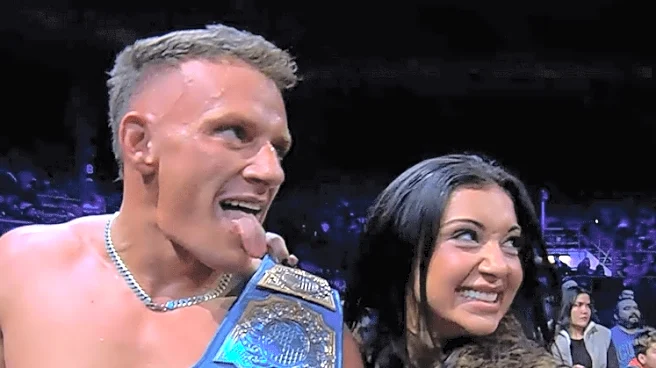What's Happening?
The Boston Red Sox recently faced a strategic decision during their 11th inning loss to the Baltimore Orioles at Fenway Park. The game ended 4-3 in favor of the Orioles. A key moment occurred when the Red Sox chose not to challenge the arm of Orioles center fielder Colton Cowser, who ranks in the 95th percentile for arm strength among major league fielders. With Nate Eaton on third base and Roman Anthony hitting a fly ball to center field, the Red Sox opted not to send Eaton home, a decision made by third base coach Kyle Hudson. Despite Cowser's throw being off-line, Eaton remained at third, and the subsequent batter, Alex Bregman, popped out to end the game.
Why It's Important?
This decision highlights the importance of strategic planning and in-game decision-making in baseball. The Red Sox's choice not to challenge Cowser's arm reflects their reliance on pre-game scouting and analysis, which can significantly impact game outcomes. Such decisions can affect team morale and fan perception, especially in close games. The Red Sox's current standing and their playoff aspirations make each game critical, and strategic decisions like these can have long-term implications for their season. The team's ability to analyze and adapt to opponents' strengths is crucial for their success.
What's Next?
The Red Sox will need to evaluate their decision-making processes and consider adjustments for future games. As they continue their series against the Orioles, they may face similar situations where strategic calls could determine the outcome. The team will likely review this game to refine their strategies and improve their chances in upcoming matches. Additionally, the Red Sox's performance in the remaining games of the season will be crucial for their playoff hopes, making every decision on the field significant.










